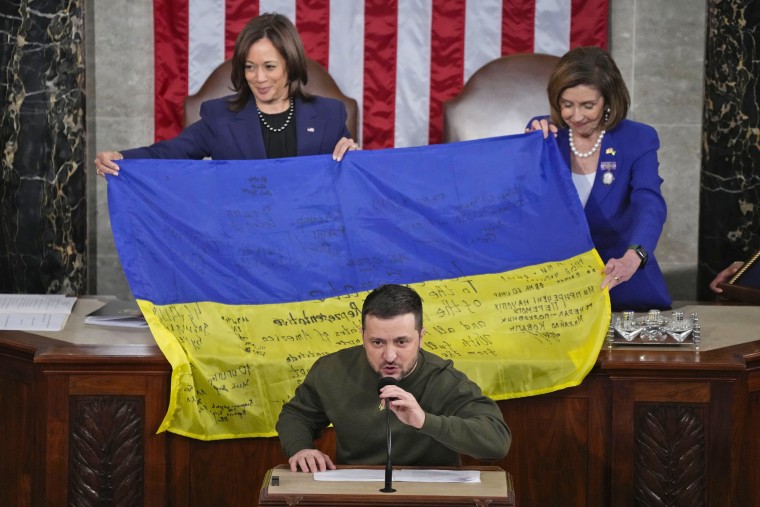The fact that some congressional Republicans are opposed to additional U.S. aid for Ukraine is not new. What is new, however, is the fact that this GOP contingent continues to grow significantly larger. NBC News reported:
An amendment to the defense funding bill by Rep. Matt Gaetz, R-Fla., to prohibit all military assistance to Ukraine won 93 Republican votes Wednesday, as 126 Republicans and all 213 Democrats voted against it. That’s up from 70 Republicans who voted for a similar measure by Gaetz in July.
For a full list of the 93 House Republicans who voted for the measure, the roll call is online.
A separate proposal, from Republican Rep. Andy Biggs of Arizona, would’ve slashed U.S. military aid to Ukraine in the defense spending bill, and it received 104 votes. Like Gaetz’s measure, all of the members supporting the proposal came from the GOP conference.
It’s worth emphasizing that while both amendments failed, the far-right members who championed them ended up getting their way, at least in the short term. NBC News’ report added, “Both amendments failed in lopsided votes, but the GOP opponents succeeded in getting leadership to strip out the Ukraine funding and try to pass it as a separate bill anyway.”
This, of course, says a lot about House Speaker Kevin McCarthy, who continues to try to make many of his most radical members happy, even when their proposals fail to gain majority support.
But the developments on the House floor this week also said a lot about the larger trajectory of the Republican faction.
About a year ago, as Congress approved a series of measures related to supporting Ukraine, the number of Republicans opposing the bills was quite small. Circling back to our earlier coverage, when the House voted overwhelmingly to ban oil imports from Russia, for example, only 15 House Republicans opposed the measure. A week earlier, the House easily passed a non-binding resolution in support of Ukrainians, which only three Republicans opposed.
Soon after, the House voted to suspend normal trade relations with Russia, and that measure was opposed by only eight Republicans.
When the House passed a bill directing the Biden administration to collect evidence of Russian war crimes, only six Republicans opposed the measure. When the House passed the Ukraine Democracy Defense Lend-Lease Act, only 10 GOP members voted no. The same week, the House passed a largely symbolic measure, pressing the White House to support Ukraine through confiscated Russian oligarchs’ assets, and four Republicans opposed it.
It wasn’t long before this GOP contingent picked up some unflattering nicknames. Then-Republican Rep. Liz Cheney, for example, labeled them the Republican Party’s “Putin wing.” The Democratic Congressional Campaign Committee called them the “GOP’s pro-Putin faction.” A Washington Post report added that these Republicans have formed “what some Democrats (and even critics on the right) have labeled ‘Putin’s Caucus.’”
But a year later, this faction is noticeably larger. We’re no longer talking about a handful of fringe figures: Gaetz’s proposal would’ve blocked all U.S. security assistance to Ukraine, and roughly 42% of the House Republican conference went on the record in support of the change.
The GOP’s so-called “Putin wing,” in other words, appears to be getting incrementally bigger.
This post updates our related earlier coverage.

